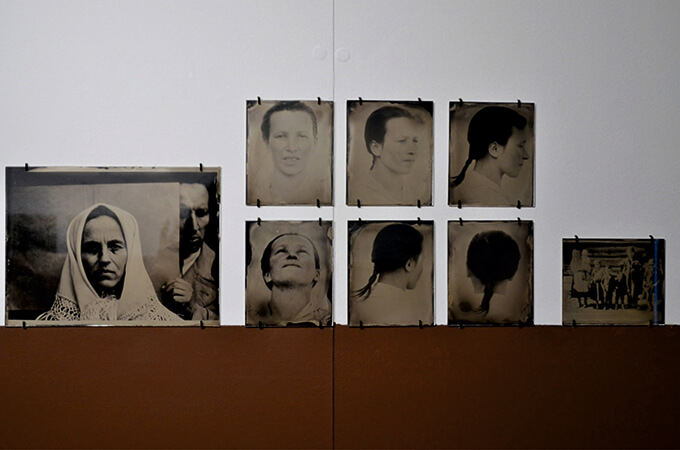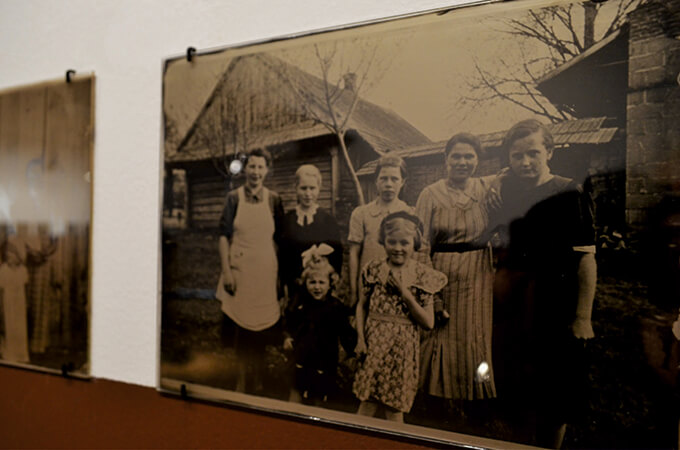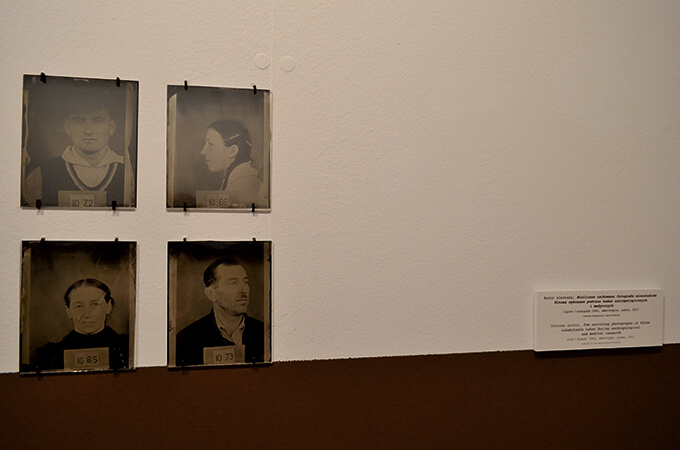Collection Institut für Deutsche Ostarbeit, photographs
| title: |
Collection Institut für Deutsche Ostarbeit, photographs |
| year: | 2017 |
| dimensions: | 24/18, 9/10 cm - 51 pieces |
| technique: | wet collodion, ambrotype - photographs on glass plates |
| description: | The canvas for the exhibition Collection Institut für Deutsche Ostarbeit (IDO) [Institute of German Work in the East] became the activity of the title German research institute established by the fascists in 1940 at the Jagiellonian University in Krakow. The IDO, whose president was Dr. Hans Frank, the General Governor and the minister of the Hitler government, had several sections. Until now, a little known and extremely interesting from today's perspective because the inventory of images of the population was used by the Sektion Rassen-und Volkstumsforschung [Racial and Cultural Studies Section]. Her task was to provide anthropological documentation including measurements, taking handprints, hair samples and, above all, photographic images of the faces, heads and figures The type of residential buildings of the Lemko, Polish, Roma, Ukrainian and Jewish populations was also documented.
Dorota Nieznalska reflects various uses of tools of anthropology and ethnography as well as art history. It presents the entanglement of science in totalitarianism, as well as the ambiguous status of neutral and innocent at first glance touristic and ethnographic photographs. Working on the digital record of the IDO collection, the artist moved selected portraits to glass, creating a timeless record in the ambrotype. Returning to the old technique of noble photography restores dignity taken away of them over 70 years ago. Their identity and ethnic tradition becomes a value in opposition to what it was for the Nazis: a calculated record allowing for planned extermination or selective behavior and Germanization of selected families, in particular children corresponding to the Aryan type. / Małgorzata Zwolicka / |
© Dorota Nieznalska 2009-2023 | privacy policy
website implementation: Brandrei.com


